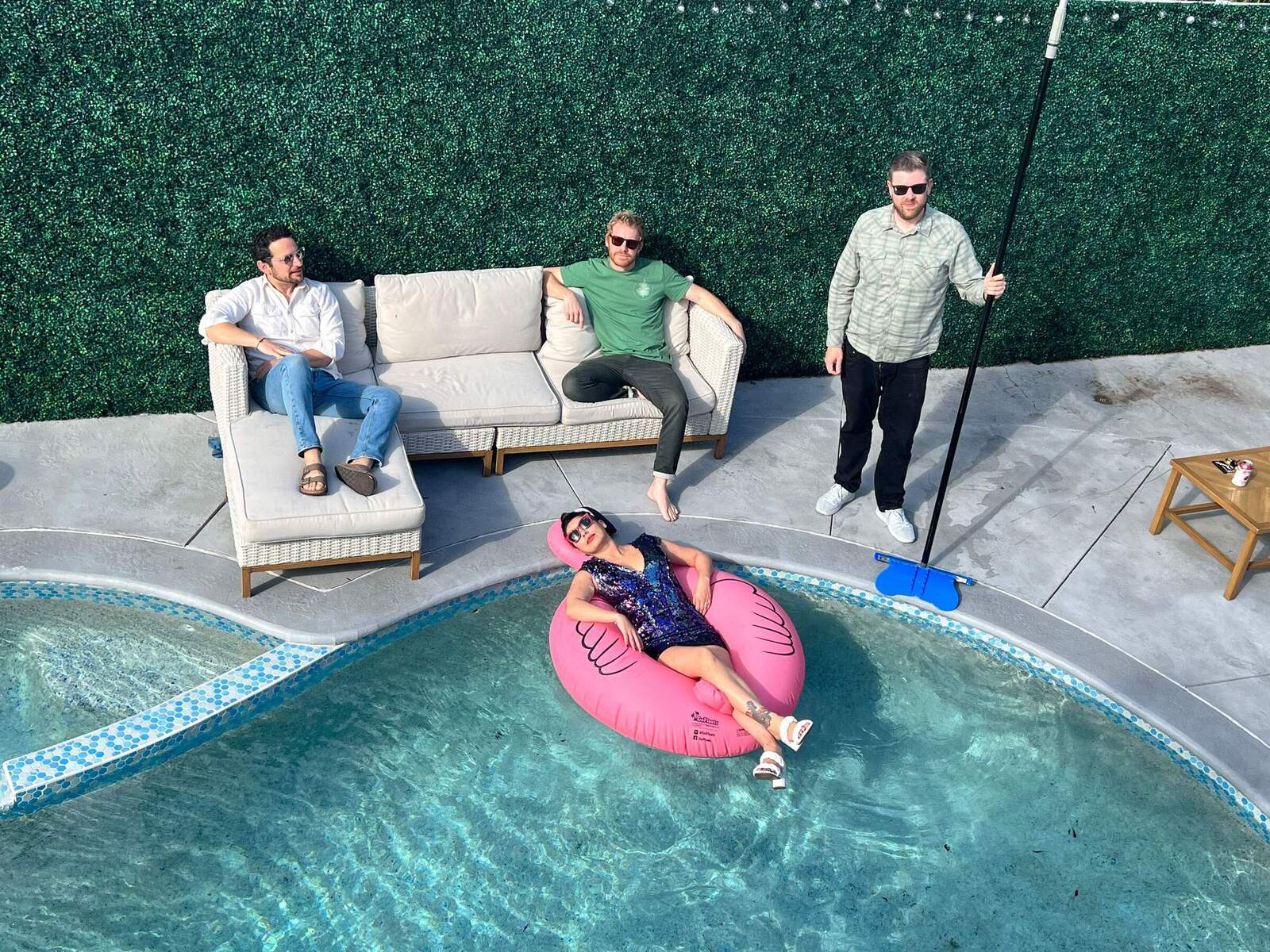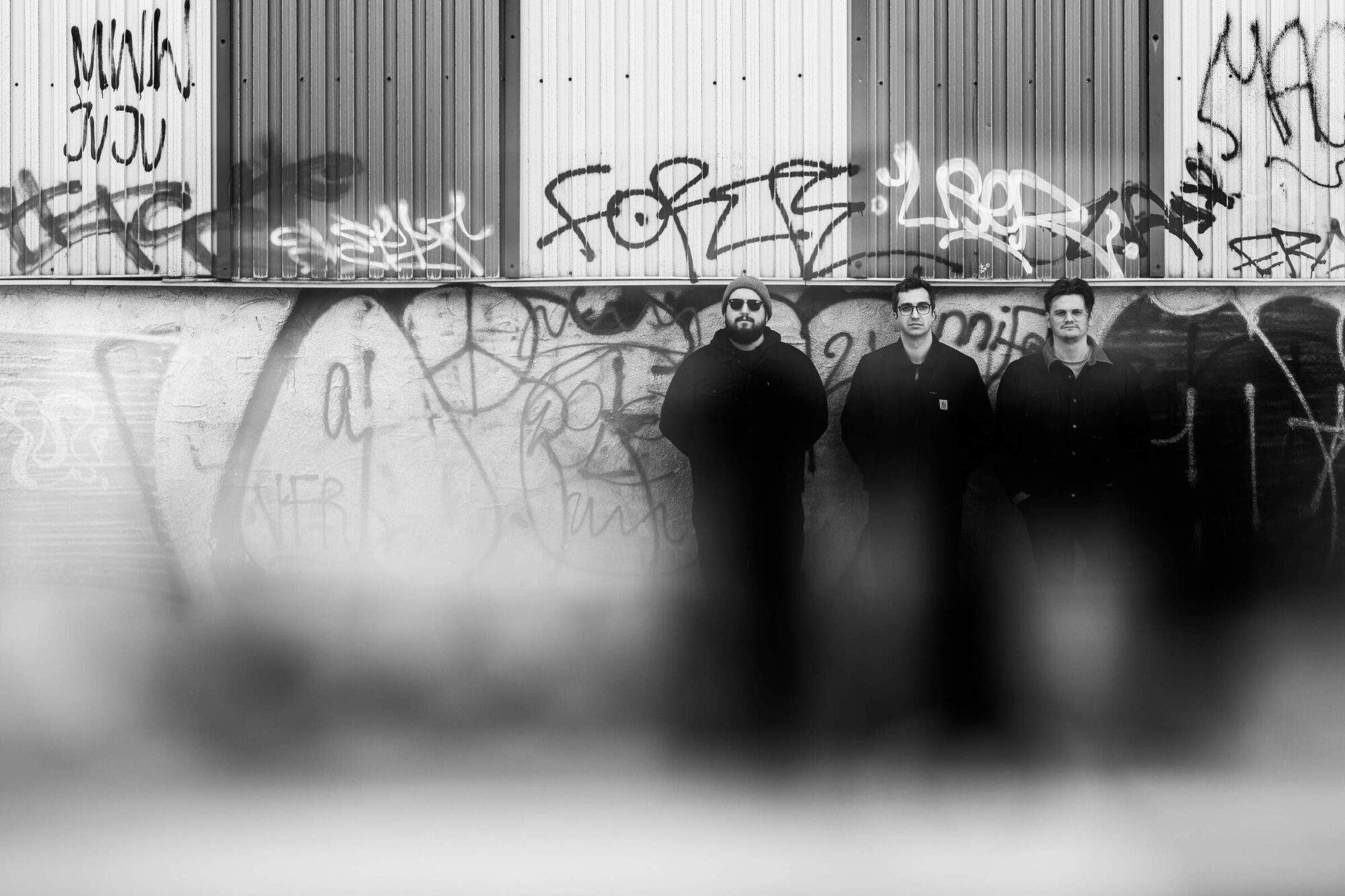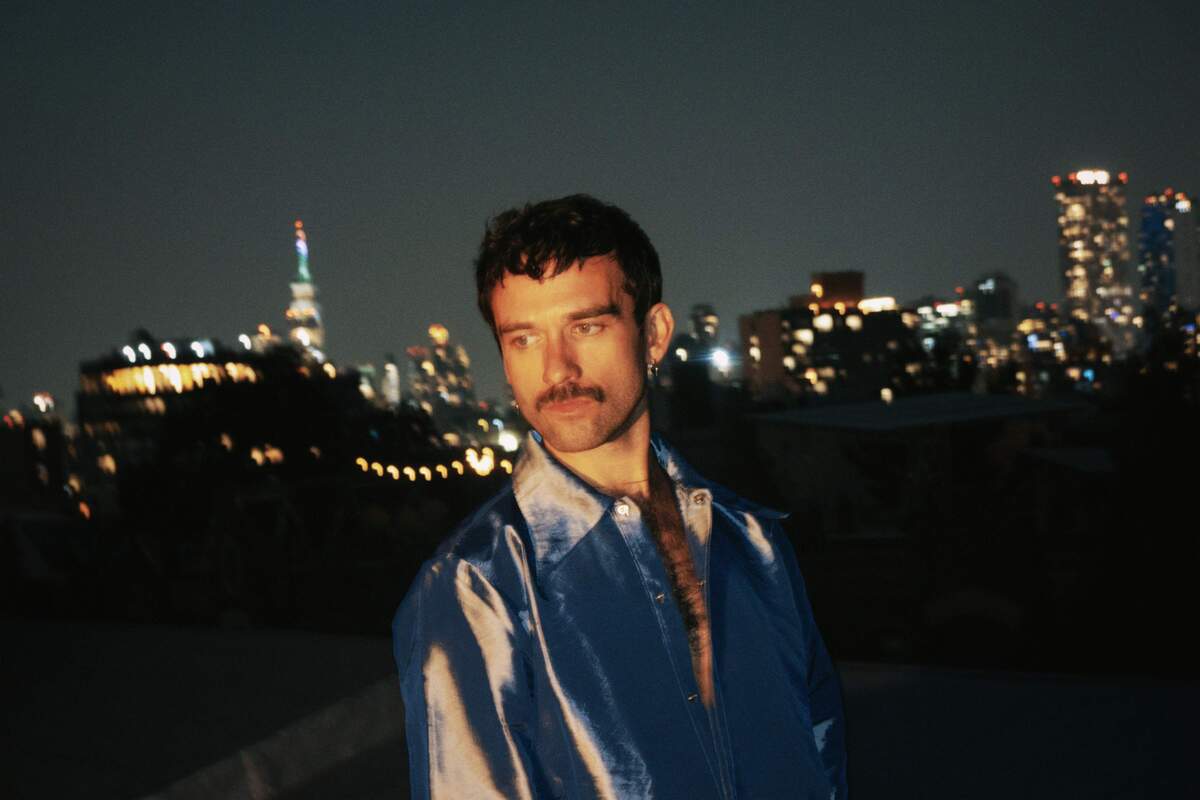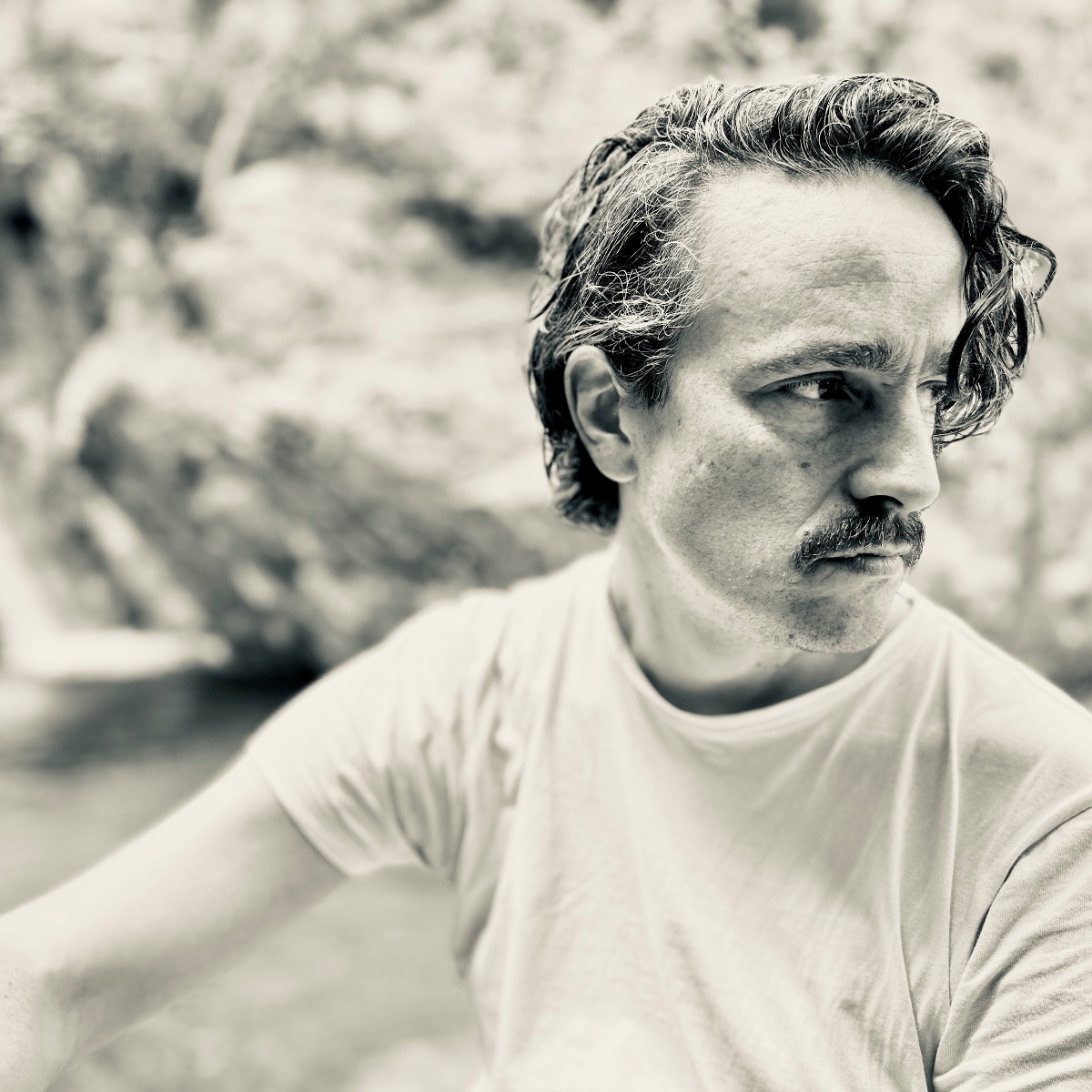Inside Sunset Lines’ Debut Album ‘The Longest Day In June’: Stories of Time, Loss, and Renewal
Sunset Lines has unveiled their debut full-length album, ‘The Longest Day In June,’ a resonant collection born from fragmented moments and shaped by themes of time, loss, and profound rediscovery.
Liz, the band’s vocalist, aptly describes it as a “catalog of rediscovery,” and the album certainly carries that weight, feeling like journal pages carefully stitched together with sound.
The album opens with ‘Sailboat Balloon,’ a track infused with a delicate balance of breath and ache. It feels like a memory that has at last found its surface. ‘AWOL,’ penned in the wake of career-ending disillusionment, builds with palpable tension before culminating in a release, its layered vocals leaving the atmosphere charged and transformed. Paul’s production is notable for its restraint, masterfully holding space rather than filling it. The songs consistently bloom outward from Liz’s voice, each musical element added with gentle care. The final notes resonate as a settling; a quiet understanding achieved.
Yet, not all is gentle. ‘Gasoline and Flowers,’ a self-described “misfit song” from 2018, returns reborn with a propulsive new rhythm and sharper edge. The rhythm section, comprised of Brett and Adam, expertly anchors the entire album, seamlessly navigating the sonic space between the city and the serene calm of the coast. ‘The Longest Day In June’ is, ultimately, laying down something profoundly true in sound.
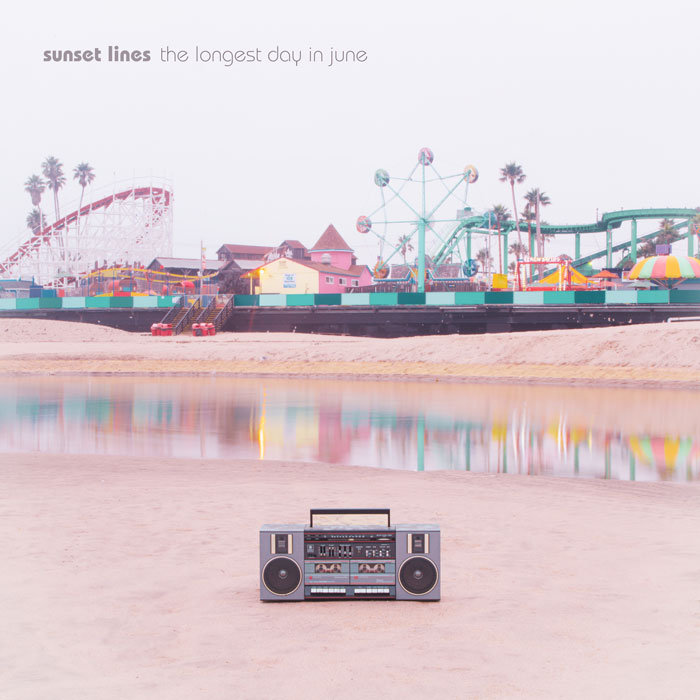
“The muse shows up barefoot, with sand in her hair and no real plans.”
So, ‘The Longest Day In June’ is finally coming out! How does it feel to be on the cusp of releasing your first full-length, especially after all that “cataclysmic change” Liz went through? Is it more relief, excitement, or a mix of everything?
Liz: It’s certainly a mix of everything. We’ve put a couple of EPs out before, but we’ve always wanted to do a full-length album, so it feels very rewarding to finally be accomplishing that, especially with it being 3.5 years in the making, which is the longest we’ve ever worked on a single set of songs. In that sense, it’s a huge relief to have it out there finally. With that said, we’ve been working to put this out for so long that now that it’s finally out, I think there’s also a little bit of “now what? What’s next?” But we already have a batch of new songs that we are working on (feels good to be working on new material after so long!) and we have some upcoming shows in the works, so I think that answers the question? Haha
Liz, you mentioned the album was a “catalog” of your rediscovery. If you had to pick one song that perfectly encapsulates that feeling of finally being yourself again after the corporate grind, which one would it be and why?
Liz: That song would definitely be ‘AWOL,’ which is the very first song I wrote for this record back in February 2022, right after I left my last job where I had a super negative experience. It’s definitely one of the sharper, edgier songs on the record, with the verses and chorus building so much tension throughout. The outro delivers that release. It’s a huge swell of emotion and relief, and for me, literally returning to the sea and just letting the waves and water rush over me, because I finally had time to do that again and to appreciate the beauty in the space that I occupied, both mentally and physically.
Paul, your production really makes the band’s sound pop. When you’re layering all those 80s synths and guitars, how do you know when a song is “done”? Is there a moment where you just step back and go, “Yep, that’s it”?
Paul: Thank you! Over the years, I’ve settled into a standard approach for most of our material that helps me get a sense of when a song is considered “done” in my mind. We track the rhythm section first, along with a base synth sound or pad laid down by Liz, which will always end up in the final mix as the “glue” of the song.
From there, we track all of Liz’s vocals, including harmonies and backing parts. Our songs are always built around her vocals, so it helps me get a sense of what else the song needs in terms of either additional parts that fill it out sonically (certain frequency ranges) or where there is space for additional melodic ideas on synth or guitar. I then sit in our studio and track back and forth between guitar and synth until I feel like it sits well in terms of the fullness, as well as having enough ideas to keep things interesting.
The band name, Sunset Lines, is a cool nod to the line at an SF coffee spot. Now that you’re down in Santa Cruz, how has that coastal, laid-back vibe influenced your songwriting or even just your day-to-day creative flow compared to the city?
Liz: It’s a bit of a trip. We both definitely miss San Francisco and we still find excuses to go up as often as we can, but the space and vibes of Santa Cruz are hard to beat. It’s a surfer town, and as a beach baby myself, it’s a natural fit.
Down here, the pace of life gives songs room to breathe. There’s this coastal exhale that creeps into everything from writing and rehearsing to just daydreaming while looking at the waves. In SF, we’re always moving fast, fueled by late nights and a million overlapping lives. Here, the muse shows up barefoot, with sand in her hair and no real plans. We’ve been leaning into more fluid melodies, playing with natural textures, and letting the music simmer instead of sprint.
So yes, Sunset Lines will always have city DNA, but Santa Cruz is teaching us how to float a bit.
‘Absence Without Leave’ sounds like a pretty cathartic song. Was writing and recording that track like a big sigh of relief, or was it more of a “let’s get this out there” kind of feeling?
Liz: I know I spoke about this song earlier, along with the tension and release that I felt and incorporated into it when writing it. This song essentially mirrors my emotions as I left my previous career to find myself again.
I had so much fun with this one, actually. I was listening to a lot of Flaming Lips and Indigo DeSouza at the time, and I think those influences are also reflected in the song to a certain extent.
The grand finale to the song is one of my favorite parts I’ve ever written. I love harmonies and writing complex vocal parts, so I really let myself go with this one, creating a universe of harmonies and parts unlike anything I’ve done before. My goal was just to make it sound as big as possible. Altogether, I think there were about 65 vocal tracks for the outro. I call it my big “Rack of Harm(onies).” It’s cheesy, but every now and then I still get chills from listening to it, just from the perspective of what I was able to create and capture vocally.
‘Sailboat Balloon’ is such a poignant opener, especially knowing the story behind it. How did you decide to lead with such a deeply personal track to kick off the whole album? Did it feel like a big leap of faith?
Liz: It happened a long time ago, and I think I was young enough to kind of bury it and move on, but it was a shallow grave, and the weight and absence of a parent can sometimes grow with time instead of dissolving into that numbness we all sort of expect. I think that was it. At first, there was numbness. But over the years, that numbness turned into this aching awareness of everything I couldn’t share with him and would never get to. It’s a newer kind of grief. Less about loss, more about the silence that follows it.
What’s wild is the timing. My dad actually passed away in June, and the song really started taking shape during a particularly heavy summer. I didn’t sit down with a plan to write a tribute or anything. It just kind of came out, all at once, like the song had been waiting for the right moment to surface.
We were planning to release the album in the summertime, and it just felt right. Or maybe more like inevitable. ‘Sailboat Balloon’ was always going to be the opener, even when it felt risky. There’s something disarming about starting with the most vulnerable piece, like letting listeners into the deep end before we float toward the light.
‘Gasoline and Flowers’ has that great 80s new wave feel. What were you guys listening to around the time you wrote that one? Any specific bands or tracks that were on heavy rotation that might have snuck into the vibe?
Paul: Liz actually wrote this song back in 2018. We were still playing as Sunset Lines, but we had a totally different lineup at the time (two rhythm sections ago), and it was a much different band. The original version of the song had more of a garage rock feel, and we could never really get it to work, so we put it on ice for a long time.
Four or five years later, with a new rhythm section (Brett and Adam), we started bringing back some of our older material that didn’t work previously to see if it might spark some new ideas. Pretty much every song we tried didn’t work for various reasons, but this ended up being the only one that did take, almost immediately.
When we tracked the song, I was going for 80s and early 90s British indie vibes in terms of the instrumentation (Smiths, Stone Roses, etc.), especially the guitars. I also really wanted to add “strings” to the song, as I enjoy orchestral or chamber pop sort of stuff and felt like this song lent itself to that. There were a few songs from a band called Field Music that I think did that super well and were in the back of my mind when I was trying to get that sound (not that ours remotely approaches what they did in terms of complexity). The end result was pretty exciting in terms of how different it sounded from the original and how much more it felt like “us.”
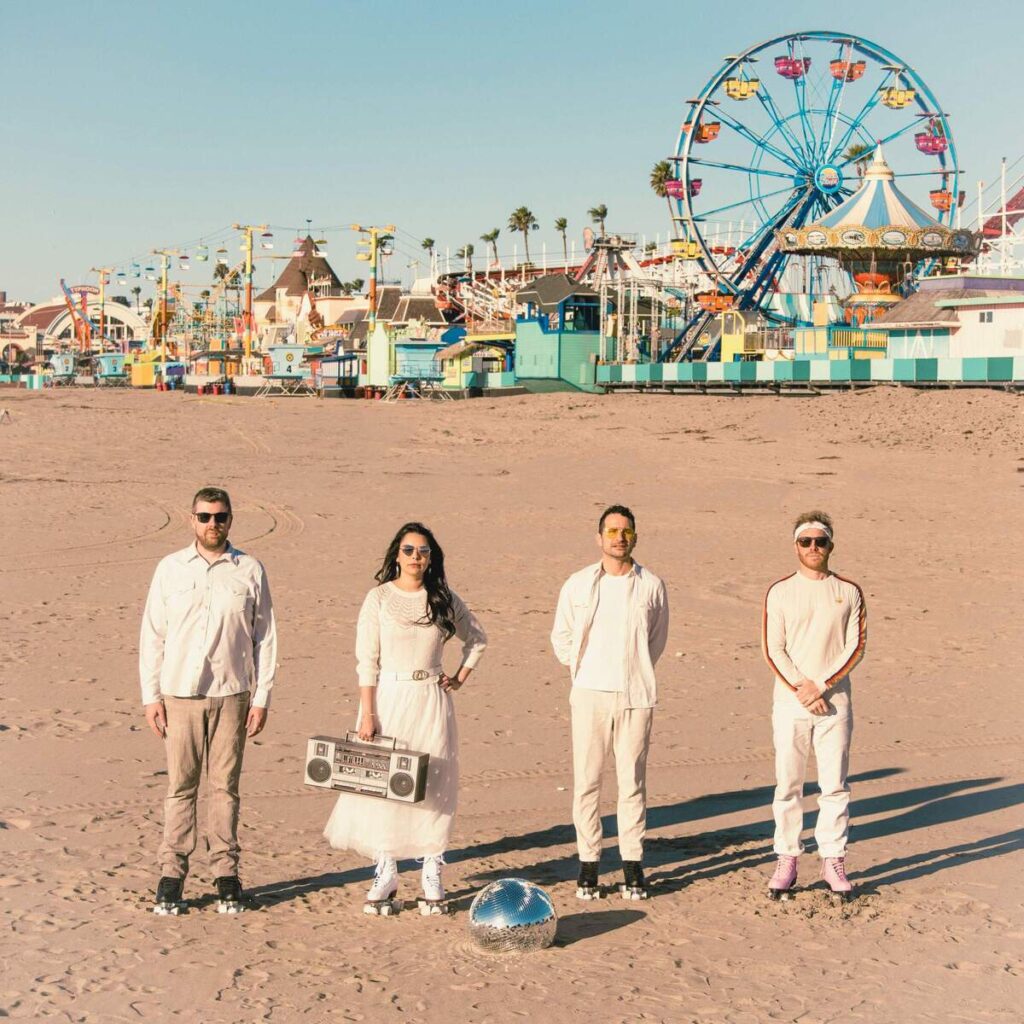
For Brett and Adam, as the rhythm section, you’re the engine room of the band. What’s been the most fun part about blending that San Francisco vibe with the Santa Cruz groove? Any particular challenges in making those two worlds meet in your playing?
Adam: Both of us came to this project with a bit of a funkier, looser sound, emphasizing more disco grooves and driving rhythms. It has been a fun adventure melding our upbeat, danceable sound with Liz’s personal songwriting and Paul’s more angular sonic soundscapes. We have found a good process where Liz brings her lyrics and chord changes to the studio, and we all work together to develop it into something that feels right for all of us.
Klemen Breznikar
Headline photo: Brett Wiltshire
Sunset Lines Facebook / Instagram

